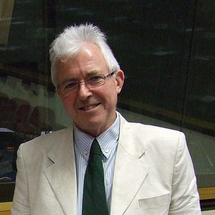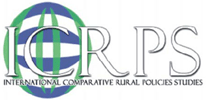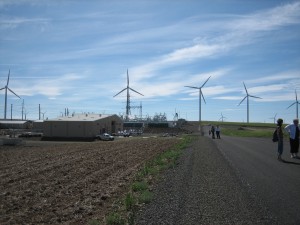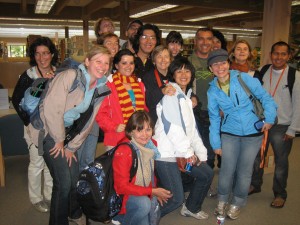by John Bryden, 26/01/2014
From the start the ICRPS group adopted a territorial approach to rural policy, in fact following the development of the OECD approach, in which several of us were quite closely involved. This meant that we were, and are, more interested in rural regions, their people and economies and in the policies that affect them, than in rural sectors, and sectoral policies per se.
Equally, we were concerned about the sustainable development of rural regions, and policies that might support that, rather than in economic growth, or the ‘environment’ per se.
We were naturally focused on the idea and practice of comparative research and analysis – how and why policies vary in different contexts; what might or might not be ‘transferable’.
Interdisciplinarity was also a very important principle and goal, but with a social science focus – achieved by drawing Faculty and Students from a range of social science backgrounds and disciplines as well as by joint teaching and interaction.
We were also committed from the start to going beyond the ‘lecture theatre and seminar room’ of academia to meet people and observe institutions in rural regions, as well as the policy makers dealing with them. The study tour and field trip were therefore important and highly successful elements of the summer schools.
In addition we believed in the power of group projects with a mix of nationalities and disciplines to provide an important means of learning as well as experience in project preparation, interviewing, data analysis, report and policy brief writing, presentation and synthesis of qualitative and quantitative material.
Internationalism was also important to us because of a growing influence on rural regions and people of international organizations and agreements including OECD, EU, WTO, UNDP etc. We aimed that students should better understand how policy making took place in an international environment. For a number of years we had a mock WTO negotiation, broadly following the Doha round, with student and faculty working together in country teams and representing ‘their’ countries around the table.
The Structure of the Summer School
The structure reflected the ideas of the curriculum. It included lectures from Faculty and invited guests, seminars and think-tanks, group projects, field trips and study tours, meetings with policy makers and agencies etc. Sometimes we included a mock international negotiation –such as the mock Doha rounds mentioned above, but this was lost a few years after we reduced the time for the summer school from three to two weeks. This change, necessary to save costs and time after the end of EU funding, led us to focus on the idea of a core curriculum that would become a more or less fixed part of every summer school. This core is reflected in the content of Tom Johnson’s ICRPS e-book as well as in the annual Institutes.
As a result of student feedback in the annual evaluations of the summer school, the participatory content has expanded at the expense of ex cathedra lectures. The main format now is for the more formal sessions to comprise several short presentations followed by a more lengthy debate in which both students and Faculty take part. A unique consequence of this format is that students have the opportunity to see seasoned researchers and theoreticians sparring with each other over a range of issues—something that does not happen in a traditional lecture format. This is probably a good thing, although some of us miss the fine ex cathedra performances of Frank Delmartino, Laurent van dePoele and others, and the possibility for rather deep and extended analysis that such events provide. It seems to some of us that the learning experience is not always or necessarily improved by a wholesale move to participatory methods.
Photos above: Kjersti Nordskog
 JOHN BRYDEN is one of the ICRPS consortium founders and has a PhD in economic development. Among his merits, he is Professor Emeritus at the University of the Highlands and Islands and Professor of Human Geography Emeritus at the University of Aberdeen, both Scotland. He now lives in Ås, Norway. More on John´s work at www.johnbryden.com
JOHN BRYDEN is one of the ICRPS consortium founders and has a PhD in economic development. Among his merits, he is Professor Emeritus at the University of the Highlands and Islands and Professor of Human Geography Emeritus at the University of Aberdeen, both Scotland. He now lives in Ås, Norway. More on John´s work at www.johnbryden.com


